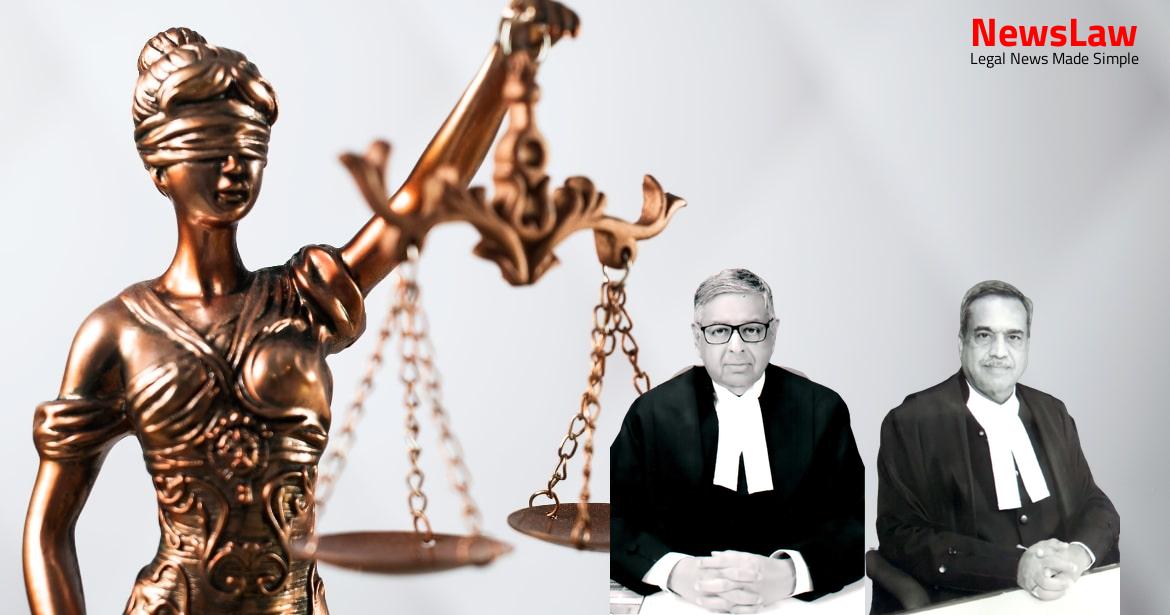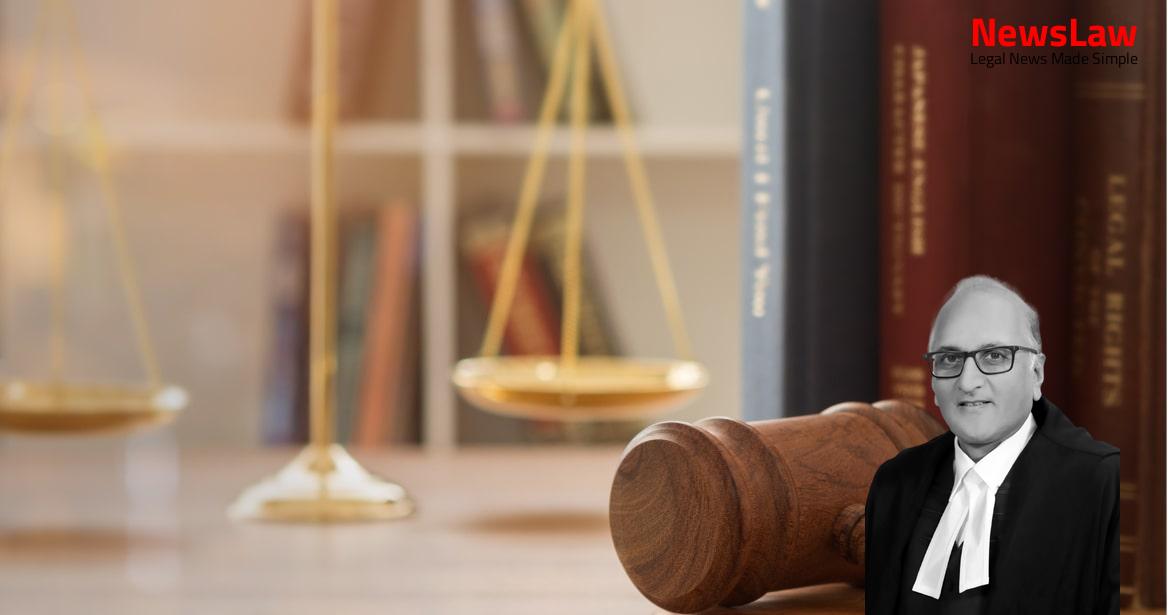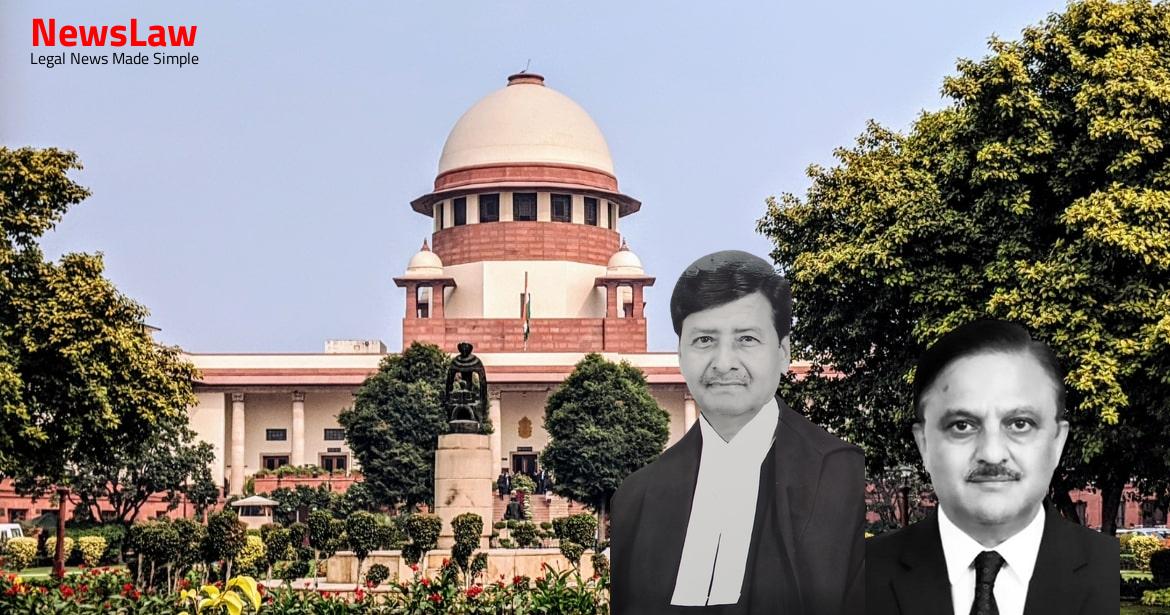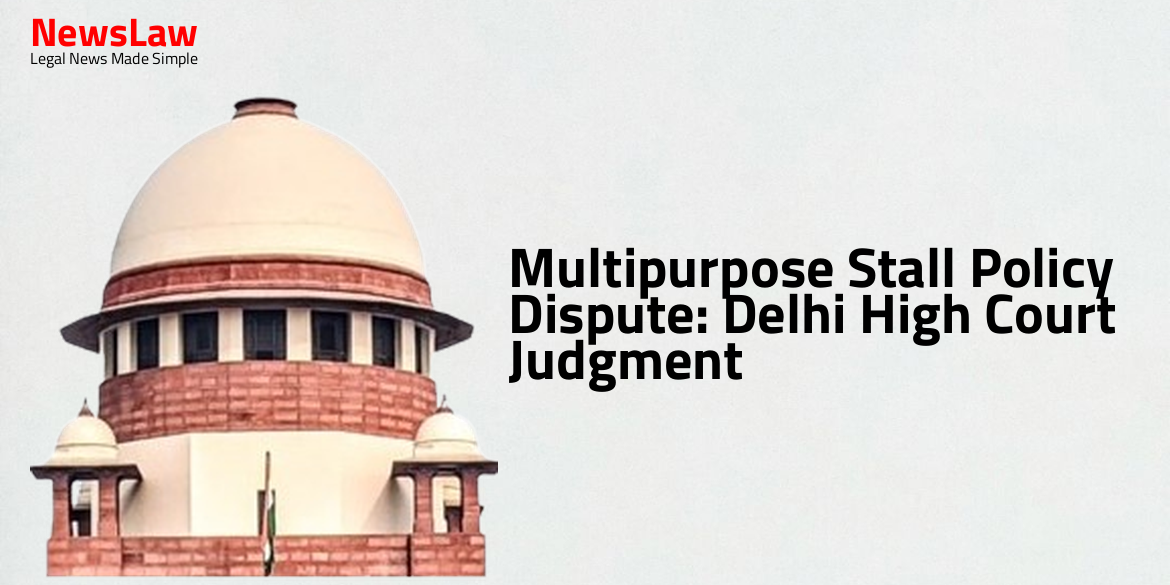In a recent legal case regarding admissions and vacant seats in NEET-PG-2021, the court’s focus was on upholding the integrity of the fixed schedule for medical education. The court dismissed petitions seeking extensions or additional counselling rounds, highlighting the importance of following the approved timetable. This summary delves into the court’s legal analysis and decision-making process, shedding light on the importance of maintaining the structure of the admission process despite vacant seats.
Facts
- The dispute pertains to admissions for NEET-PG-2021.
- The petitioners sought special Stray Rounds of counselling for the remaining 1456 vacant seats.
- Multiple petitioners approached the Court seeking participation in vacant seats after AIQ Stray Vacancy Round.
- The NEET-PG-2021 counselling included four rounds: Round 1, Round 2, Mop-Up Round, and Stray Round.
- The High Courts dismissed the writ petitions leading to the filing of special leave petitions.
- Petitioners/candidates are ready to get admission on any of the seats remained vacant
- An additional round of counselling for 146 seats was conducted due to abrupt addition of additional seats in NEET-PG-2021
- Mop-Up round was cancelled and directed to be reconducted
Also Read: Ruling on Circumstantial Evidence in Murder Case
Arguments
- The petitioners urge to direct the respondents to conduct a Special Stray Round of counselling as a one-time measure and as a special case.
- The petitioners argue that despite the four rounds of counselling for NEET-PG-2021 seats, 1456 seats remain vacant, primarily in non-clinical courses and private colleges.
- The respondents argue that these vacant seats are typically rejected because they are non-clinical or due to high fees in private colleges.
- It is mentioned that conducting additional rounds of counselling may not fill all vacant seats, and the admission process for NEET-PG-2022 has already begun.
- The Union of India and Medical Counselling Committee argue that the schedule must be followed to avoid setting a precedent for extensions and to maintain the integrity of the time schedule.
- They state that the vacant seats are not solely for paramedical courses but due to non-joining, resignations, and candidates not reporting.
- The Union of India and the Medical Counselling Committee believe that the decision not to conduct another special round of counselling was a conscious one, considering the ongoing admission process and the nature of the vacant seats.
- Reference is made to previous court decisions regarding the filling of vacant seats and the observation that vacant seats alone are not sufficient grounds for extension or further opportunities to fill them.
- It is emphasized that the registration for NEET-PG-2022 has closed, preventing candidates from NEET-PG-2021 to appear for NEET-PG-2022.
- The argument is made that candidates cannot be replaced for NEET-PG-2021 and NEET-PG-2022, and the 1456 vacant seats can only be filled through a merit-based competition for NEET-PG-2021.
- It is suggested that admitting students to the remaining vacant seats may not affect their education as classes for NEET-PG-2021 started before the first counselling batch began.
- The respondent argues that admission cannot be granted mid-term even if some seats are vacant
- The reasoning behind this argument is not explicitly stated in the provided context
Also Read: Challenging Legal Presumptions in Negotiable Instrument Cases
Analysis
- The court emphasizes the importance of adhering to the time schedule in the admission process to prevent any adverse effects on medical education and public health.
- The decision not to conduct additional counselling rounds is supported, as it aligns with the interests of medical education and public health.
- Vacant seats, especially in non-clinical courses, are noted to be a common occurrence every year.
- The court dismisses petitions seeking extension of time schedule or additional counselling rounds due to vacancies, as it could lead to an endless process and defeat the purpose of the fixed schedule.
- The need for broad-based equality is highlighted, rather than exact mathematical precision, in the admission process.
- The court reiterates that seats remaining vacant cannot be filled mid-term and adherence to the approved schedule is crucial.
- Identical view taken in Neelu Arora v. Union of India (2003) 3 SCC 366 and connected matters
- Court’s decision in Medical Council of India v. Madhu Singh (2002) 7 SCC 258 stating no scope for admitting students midstream
- Admitting students midstream goes against the spirit of statutes governing medical education
- Granting relief now may affect medical education and public health
- Petitioners not entitled to mandamus for special stray round of counselling
Also Read: Legal Analysis of Admission Irregularities in Educational Institutions
Decision
- Both the writ petitions and special leave petitions are dismissed.
- No order as to costs.
Case Title: ASTHA GOEL Vs. THE MEDICAL COUNSELLING COMMITTEE (MCC) (2022 INSC 641)
Case Number: W.P.(C) No.-000409 / 2022



